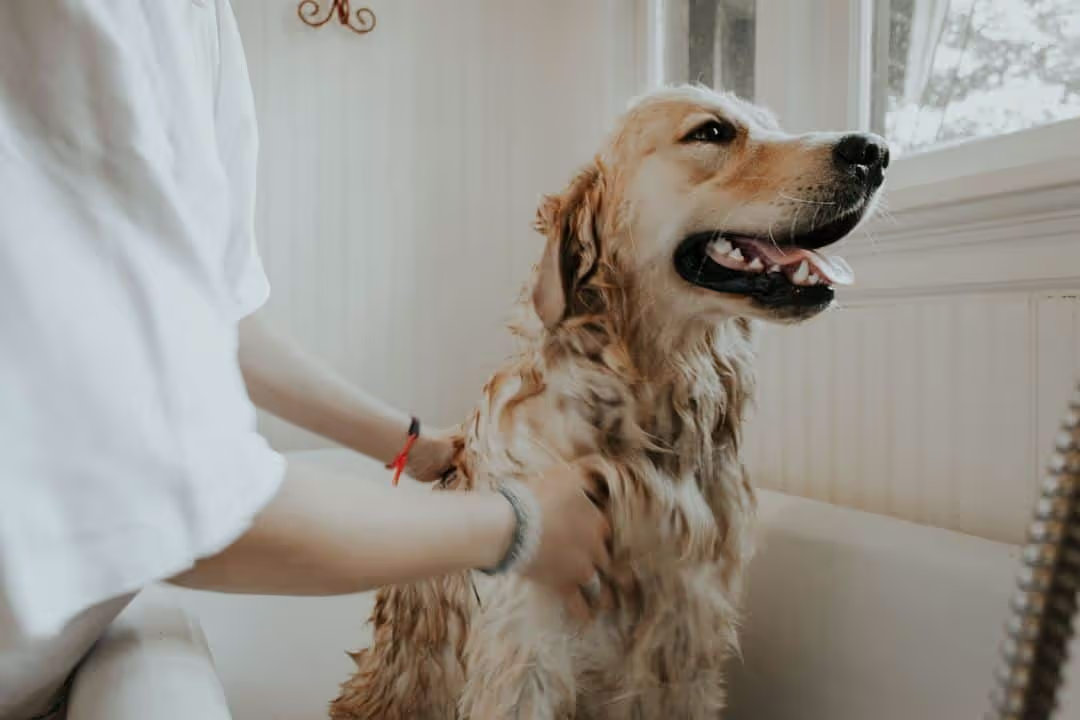For the Purrbabies


Is there something in the air or is that smell coming from your pup? Here’s what could be causing your dog’s bad fishy odor.

While there are lots of funky odors that can come from our pups, the fishy smell is one of the most off-putting. Unfortunately, it’s also a fairly common stench for your pup to omit. Sometimes bad smells such as a fishy scent from our pup are part of their natural flora.
There are a variety of different culprits for the fishy smell. It’s important you identify the source to make sure the stench isn’t a sign of a bigger issue.
Notice the smell when you and your pup are up close and personal? The fishy stench may be coming from your dog’s breath.
The following can cause fishy breath:
First, you should be keeping track of what your dog eats. If they’ve eaten fish or gotten into your cat’s food, then that’s what is likely to blame for their fishy breath. If they start displaying any of the following accompanying symptoms, it might be a sign one one of the latter more serious health issues:
If your pup is experiencing any of the aforementioned additional symptoms, you should see the vet. The vet will do an analysis of their mouth and teeth and suggest treatment methods. If the vet suspects your dog has a more severe disease, they will perform other tests.
Do not treat your pup at home unless advised by your vet. They may recommend a variety of treatments and remedies depending on the cause of the bad breath.
For mouth related issues:
For more severe disease or illness, the vet may compose further tests and prescribe antibiotics.
A dog’s urine should smell like human urine. If you notice the fishy smell when peeing, tune in to their other symptoms.
Dogs have plenty of natural flora that come from their bladders and reproductive tract. Fishy smelling urine is most commonly caused by a urinary tract infection (UTI) or other infection like a yeast infection. These infections cause bacteria to accumulate in the urine.
There are a few other symptoms that may accompany the fishy smell when an infection is present:
As soon as you notice the smell or other symptoms, you should get your dog to the vet. The vet will compose an analysis that involves looking for crystals, red blood cells, white blood cells, protein and other indicators of a UTI.
The vet may prescribe antibiotics to clear up the infection.
👉This goes without saying, but it’s important to bathe your dog often. Bathing prevents bacterias from getting into unnecessary parts of their bodies.
Anal glands are the are the glands or ‘scent markers’ that dogs smell when they greet one another. They are little sacs on the dog’s anus that contain oily material that releases/expresses when a dog passes a bowel movement.
Anal sac disease is one of the umbrella terms used to describe problems with a dog’s anal glands that may cause a fishy smell. On the whole, it’s when a dog’s anal sacs do not release enough oil as they poop, thus leading to glands becoming solid and eventually impacted. Impacted anal sacs can’t express oils. The sacs will become hard and very painful to the touch for your pup and can eventually become abscessed and rupture.
Anal sac disease is more common in both small and obese dogs. The largest dog breeds are not typically infected. This is because they either have narrow ducts or the excess of weight on the dog puts pressure on anal sacs and blocks pores. Older dogs are more likely to deal with constipation due to dehydration. When stools are too soft or too hard, they don’t express their glands well.
Odors that come from your dog’s anal glands may be due to:
🤔 Does the fishy smell come on suddenly and briefly? Is your dog scared? That’s probably why. When dogs are frightened, they can have sudden anal gland secretions.
Your dog may experience the following in addition to a fishy smell if there is a problem with their anal glands:
👉It is extremely important to pay attention to your dog’s stool when looking for anal gland problems.
While your dog should relieve their anal glands naturally when they defecate, if they’re experiencing the above you should visit the vet. The vet will manually excrete oil from the glands. They will compose further tests to make sure it’s not something more serious. It’s important you go to the vet because abscesses can rupture through a dog’s skin.
Your vet can firstly empty your dog’s anal glands. If the anal sacs have developed an infection or tumor, biopsy will likely be ncessary before the vet prescribes a treatment method. Surgery is necessary in severe cases.
⚠️ Pet parents should not attempt to relieve their dog’s anal sacs at home unless they have been showed how by the vet (or possibly the groomer).
It’s important to note that female dogs may have other kinds of infections associated with the fishy smell. If your vet has already ruled out anal sac disease, they could be suffering from vaginitis.
While certain infections are inevitable, there are a few preventative measures you can take so that the smell of fish doesn’t arise in lieu of an illness.
Not every bad smell coming from a dog is a “fishy smell” but regardless of the odor, if it’s unusual or new, it warrants a trip to the vet. The vet will be sure that nothing dangerous is causing the foul smell. Bad odors can be a great indicator of your dog’s health.








